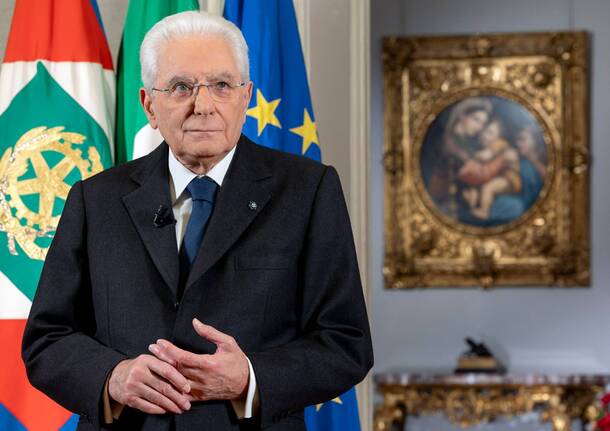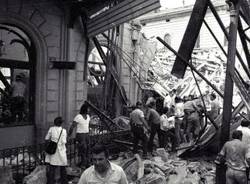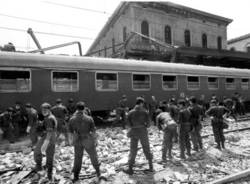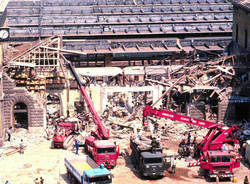Bologna - 45 years ago, the bomb that devastated and killed at Bologna train station. Mattarella: "It was a ruthless neo-fascist subversive strategy." - Varese News

It was a hot summer morning, a Saturday before a holiday, and Bologna's central station was crowded with tourists, workers, and families departing or in transit. At 10:25, the explosion devastated the west wing of the station , destroying the second-class waiting room, the offices of the Cigar restaurant company, and about 30 meters of the platform. The shock wave also hit the Ancona-Chiasso train, stopped on the first platform. The bomb, composed of a mixture of TNT and T4, created a crater and caused the structures above to collapse, burying dozens of people under the rubble .
The city immediately transformed into a machine of solidarity and relief. Firefighters, citizens, taxi drivers, and medical personnel rushed to help the injured and recover the bodies. A bus, number 37, became a symbol of that day, used as a hearse to transport the victims extracted from the rubble. The President of the Republic, Sandro Pertini, arriving in Bologna that afternoon, expressed the nation's grief in words that still resonate: "I have no words. We are witnessing the most criminal act ever committed in Italy."
Today, August 2, 2025, Bologna commemorates the 45th anniversary of the Central Station massacre , one of the most serious terrorist attacks in Italian history. At 10:25 a.m. on August 2, 1980 , a high-explosive explosive device, contained in an abandoned suitcase in the second-class waiting room, exploded, killing 85 people and injuring over 200. This attack, attributed to neo-fascist groups and considered part of the so-called "strategy of tension," has left an indelible mark on the country's collective memory.
The victimsThe 85 victims of the massacre were ordinary people from 50 Italian and foreign cities, united by the fate of being in the wrong place at the wrong time. Among them were students, workers, office workers, retirees, housewives, soldiers, railway workers, and taxi drivers. The youngest victim, Angela Fresu, was only three years old; the oldest, Antonio Pugliese, was 86. The victims' stories, carefully collected by the Association of Relatives of the Victims of the Bologna Massacre, tell of broken dreams and lives interrupted.
Angela Fresu , the youngest, was at the station with her mother, Maria Fresu, 24, on vacation on Lake Garda. Maria's body, disintegrated by the explosion, was identified only on December 29, 1980, among the remains found under the Basel-bound train. Angela, however, was found immediately, becoming a symbol of the cruelty of the attack. Mirella Fornasari , 36, worked for Cigar and was in the offices above the waiting room. That day, she had returned to the station for a meeting, and the explosion struck her while she was working with colleagues Euridia, Franca, Katia, Nilla, and Rita, all of whom died in the attack. Francesco Antonio Lascala , 56, a retired Italian railway worker, was waiting for a train to Cremona, where he would join his daughter. The delay in his train proved fatal. Verdiana Bivona , a 22-year-old worker of Sicilian origin, was at the station with Maria Fresu and her little girl Angela. She also lost her life in the explosion. Antonio Pugliese , 86, a former sharecropper and card enthusiast, was hit by objects falling from the building while waiting for a bus near the station.
The investigations into the Bologna massacre have been long and complex , marked by misdirections and false leads, even though from the very first moments the neo-fascist terrorism hypothesis was considered the most likely.
The words of President Mattarella
On the 45th anniversary, the Head of State Sergio Mattarella also spoke:
“The Bologna train station massacre has left an indelible mark of inhumanity on Italy's identity, the result of a ruthless neo-fascist subversive strategy aimed at undermining constitutional values, social achievements, and, with them, our very civil coexistence. Forty-five years ago, August 2nd, with its mangled bodies, the many innocent deaths, the immense suffering of family members, the upheaval of a city and, with it, of the entire national community, is etched in the country's memory. Bologna, Emilia-Romagna, and Italy responded promptly and firmly, expressing all the solidarity they could muster, rejecting the destabilizing plan, the complicity within state apparatuses, and the plots of those who led the massacre. On this anniversary, we renew our condolences to the families of the victims. This is the expression of a united community that adheres to the democratic principles that the perpetrators of the massacre sought to erase, instilling fear to undermine institutions, and attempting to push the country toward authoritarianism. Their responsibilities have been established thanks to the tenacious work of magistrates and public servants. The testimony of the Association of Victims' Families, which has always kept the light on the path that led to the uncovering of the perpetrators and instigators, deserves the Republic's gratitude. It is a precious example of fidelity to constitutional values, especially for young people.
Varese News











